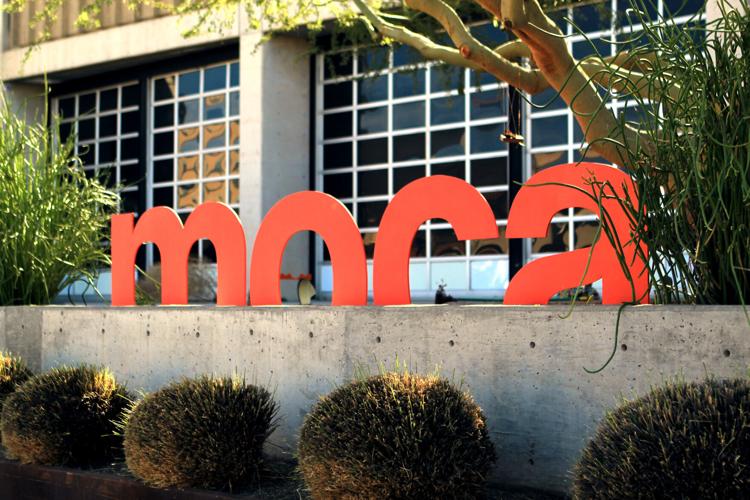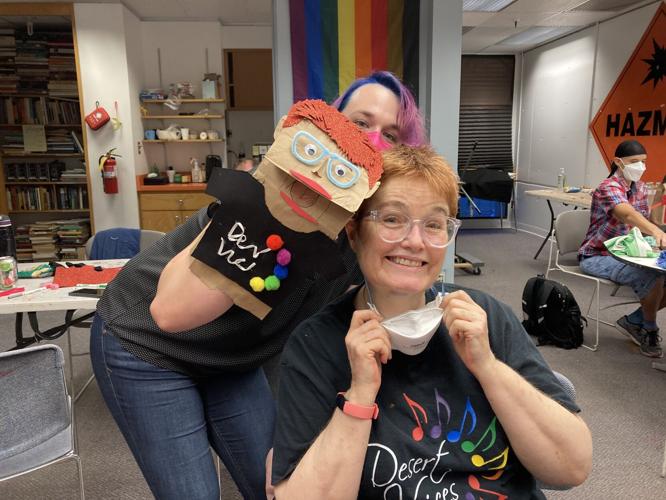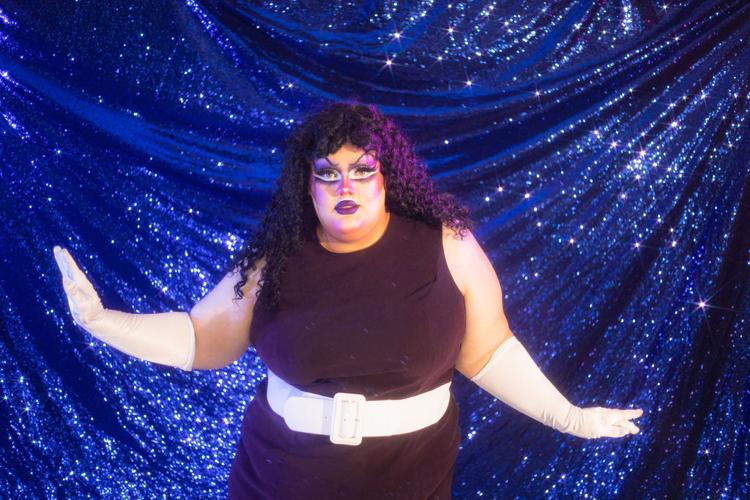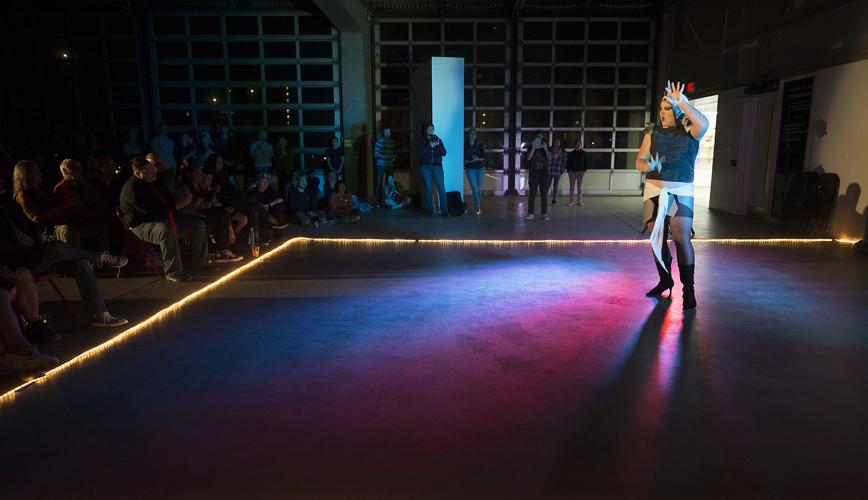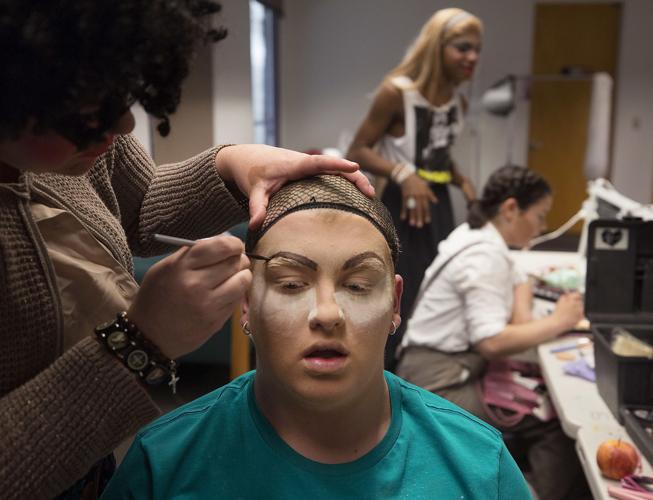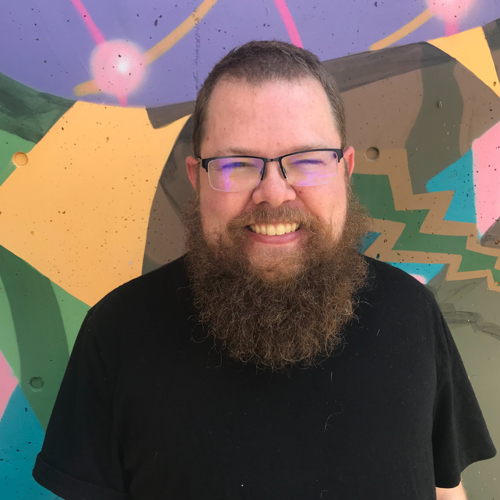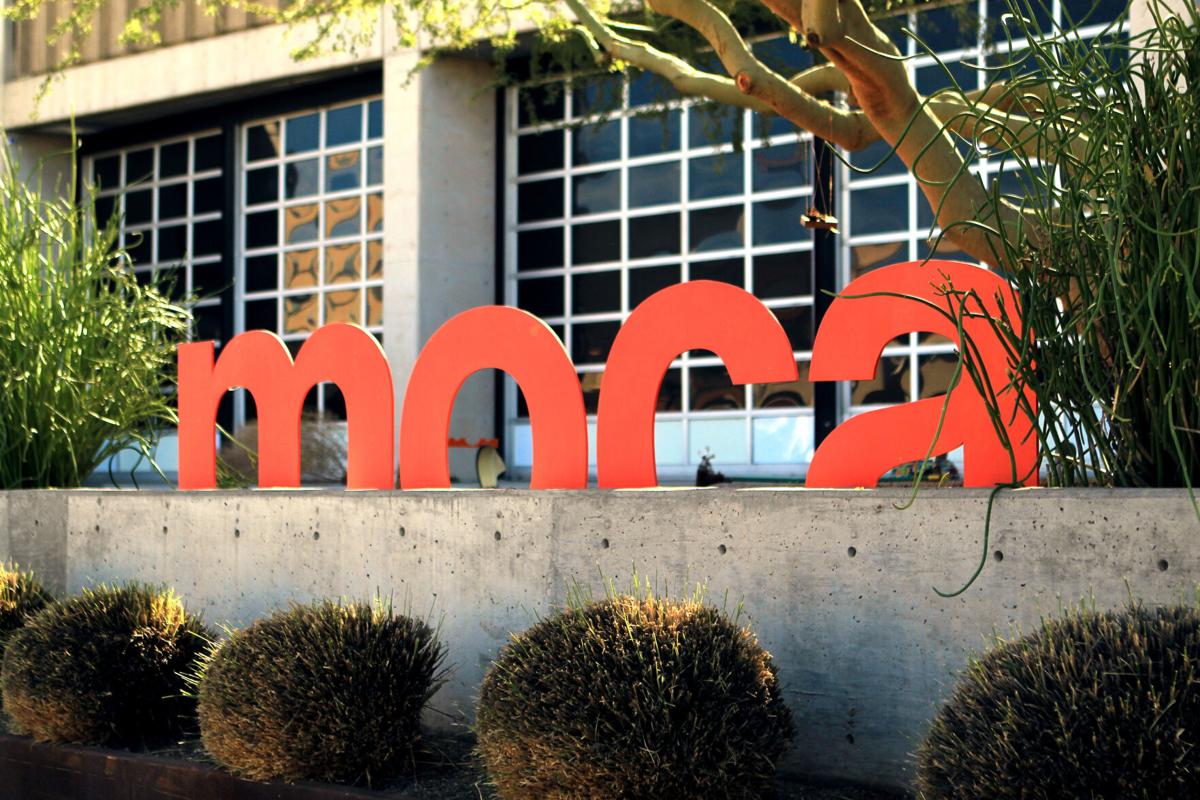When Tucson’s Museum of Contemporary Art kicks off its two intergenerational LGBTQ+ programs this week, the museum plans to create more than just fun art projects.
Instead, MOCA aspires to continue creating a welcoming space for the LGBTQ+ community to freely and artistically express themselves through the two programs — Stay Gold and School of Drag — as it has done so over the last few years.
The free programs help bridge the gap between LGBTQ+ youth ages 13 and up, and seniors over 55 (and those in between). MOCA utilizes a collaborative learning environment allowing participants to learn from one other while creating art.
“There's a lot of storytelling involved, not just art-making,” said Harrison Orr, MOCA’s education manager. “So we really encourage the students or participants to engage with one another and tell their stories. So there's a lot of writing aspects or storytelling aspects along with art-making and it's really become a big social thing. A lot of people will do it every semester or when they can because they like seeing the group.
“We've had a lot of people who stick through it for a long time and we have people that drop off. We get new people every semester and it really grows by people bringing their friends and a lot of newcomers to Tucson who are looking for programs like this. And it's a really unique program. As far as we know, it's the only program of its kind in the world.”

Alyxandra Vigil-Emerson, left, and Dorothea Nobile show off a paper bag puppet Alyxandra made to resemble Dorothea last summer during the Stay Gold summer camp.
This spring’s Stay Gold program launches Thursday, Feb. 16 and runs through Thursday, April 20. Unlike previous Stay Gold programs, the course will be split into two five-week sessions. Participants can register for a single session or for both. Registration is open until the day the program starts.
The first session, which kicks off Feb. 16, will focus on community building through mural painting, while the program’s second session, which starts on Thursday, March 23, will feature the art of printmaking. Both sessions are set to be taught by artists Mel Dominguez (who you may recognize from Galeria Mitotera) and Jack Hutchison.
The purpose of the session break is to offer additional options for participants who need a little more flexibility. Both sessions are held on Thursdays with the first session running from 4-6 p.m. and the second session from 5:30-7:30 p.m.
“I think the new edition this semester of trying this two-session thing is a result of getting feedback and seeing why people maybe aren't sticking through the entire 10 weeks,” Orr said. “I think 10 weeks is a bit long for some folks. So, I'm trying the five-week session so if they can only commit to five weeks, that's great. And then also, (sessions) being a little earlier in the day, I'm hoping makes it a lot easier for some folks.”

Stefan Vikingur, 15, aka Miss Maura Plause, center, receives some help with his makeup from Erin Armsey as they prepare for the School of Drag Showcase at MOCA Tucson on Nov. 17, 2018.
The second intergenerational LGBTQ+ program making its return to MOCA this spring, School of Drag, launches Sunday, Feb 19. The program runs from noon to 2 p.m. through Sunday, May 7.
The School of Drag program concludes with a showcase of the participants’ creations at 6 p.m. Saturday, May 13. The showcase is free to attend, even if you didn’t join the program, though donations are encouraged.
“This program really encourages students to just get out of their comfort zone and learn about the history of drag performance or gender performance,” Orr said. “Because there is a rich history that's very intertwined with LGBTQIA+ history and then learning the ins and outs of gender performance.
“It's very accepting and welcoming and supportive. And there's no pressure to do some things. The participants are making it what they want to make out of it. So, there's no pressure to dress a specific way, or even dress as a gender that you don't identify as, some people just create these cool characters or these cool costumes.”

School of Drag participant Megan Me Blush poses for a photo during the School of Drag 2022 session.
A second home for the LGBTQ+ community
Over the years, the participants of MOCA’s intergenerational LGBTQ+ programs have become like family.
Many of the older participants, or “elders,” as Orr says, enjoy sharing their stories and experiences with the younger generation. The youth participants also enjoy sharing their stories, so much so that the program keeps an updated slang book filled with the latest hip terminology for the elders to reference.
“I think the community that we've built, it's just really beautiful to see people coming back and people caring about each other and people forging friendships,” Orr said. “I've made friends through this program, so many friends, friends of all ages, and you get to meet people that you don't really have an opportunity to meet on a day-to-day basis.”

Stefan Vikingur, 15, aka Miss Maura Plause, performs “Dem Beats” during the School of Drag Showcase at MOCA Tucson on Nov. 17, 2018.
One of the perspectives that has stuck with Orr over the years is from one of the program's elders — a woman in her 80s who shared inspirational stories from her own experiences within the LGBTQ+ community.
“I asked her once, ‘What would your advice be for younger people?’ and she said, ‘Don't be afraid.’ And it just was really impactful to me,” Orr said. “Because thinking of everything she went through and that it was a lot harder being a lesbian in the '60s to '70s. And it's amazing to have mentors like that, to have people in your life of any age.”
Although the programs were started by different people, they both had similar goals in mind: bring LGBTQ+ youth and seniors together.
School of Drag was started by Frank Heightchew-Howard and Dante Celeiro, local artists involved in gender performance and drag performance communities.
Stay Gold started in 2017 by Eli Burke, a then-University of Arizona student in a graduate art and visual culture education class, according to Orr.
“It (Stay Gold) started out as a limited program in a classroom at the U of A where they brought together youth and seniors who identify as LGBTQIA+,” Orr said. “And then it quickly became a MOCA program and grew into a twice-a-year program that meets in the fall semester and in the spring semester. And it meets for 10 weeks and it's always a different medium. So we've done printmaking, collage, we've done embroidery, miniature-making, book-making, puppet-making, so it's always something different.”

Orr
Since Stay Gold and School of Drag are some of MOCA’s staple educational programs, there are no plans for them to go away anytime soon. Orr hopes to see the programs grow in new ways like spin-off programs, more summer camps and even collaborations with other museums across the country to help bring intergenerational LGBTQ+ programming to their areas.
“For both programs, I want people to try something new and definitely get out of their comfort zone, in a safe environment,” Orr said. “We try to do everything we can to be a safe, welcoming environment. All of our instructors identify as LGBTQIA+. And so, we do everything we can to make everyone feel comfortable and welcome.
“I want people to feel like this is an environment where they can try new things and experiment because that's one of the major hurdles with any group, but especially the LGBTQIA+ demographic, because if you have that extra hurdle of not feeling like you belong somewhere, you're not going to try new things. So, we're really trying to kind of level the playing field, bring in people of all ages, all generations, which is really fun to see.”
For more information about MOCA’s LGBTQ+ intergenerational programming, visit their website.
Campers made Soundsuits during MOCA Tucson's summer camp, on July 22, 2021. The theme of the camp was inspired by Nick Cave, an artist based in Chicago who has created over 500 Soundsuits since 1992. Campers decorated a plain hazmat suit and will act in a video with their creation.


